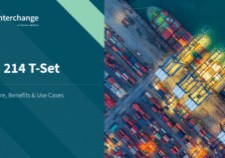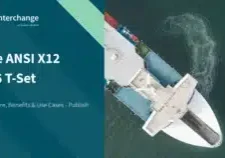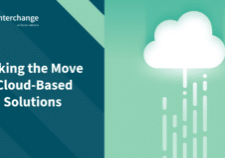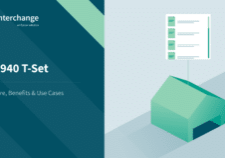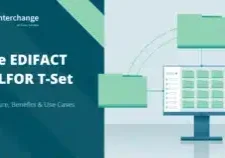EDI – A data integration service critical to business success
Business integration is a trending activity, it is creating success around the world. With new technologies continually emerging, multiple systems being used and an ever-growing requirement for accessible data, successful B2B integration is becoming a key business challenge.
For many companies operating in industries such as manufacturing, retail, logistics and automotive, EDI Data Integration Services are essential to achieving their business goals.
What is EDI?
Trading partners (the businesses exchanging data electronically) are able to exchange information quickly, effectively and cheaply with no inaccuracy in data.
Where does integration come in?
EDI integration is the process of creating an EDI workflow between trading partners. Which includes several crucial elements:

Trading partners – who do you exchange business information with?

Endpoints – which IT systems need to send, receive, and process data, e.g. your ERP or other internal systems.

EDI documents and transactions – which specific messages or documents do you need to exchange?

EDI standards – which EDI formats do your messages need to be in to reach your trading partners? Do they need splitting or manipulating?

EDI communication protocols – what configuration will you use to transmit your messages?
What are the types of EDI integration?
Direct EDI integration
Direct EDI integration involves a direct connection via the internet between your ERP or internal systems and your trading partner(s) using a specific protocol. However, the trading partner(s) can include your customers, suppliers, partners and many more. As a result, it can mean managing thousands of connections individually. This can be a complex process without a standardised protocol in place. Direct EDI integration can be ideal for business relationships that require a lot of data going back and forth as there can be a large cost if certificates or licences are required.
Indirect EDI Integration
An indirect EDI integration is the exchange of communication via a Value-Added Network (VAN), between your ERP and customers, suppliers, partners, 3PL and many more. Business messages are sent between Trading Partners via the VAN where they can be converted from raw data to an agreed EDI standard and automatically routed to the correct end point using a different communication protocol.
Hybrid EDI integration
Sometimes there will be a requirement to go for a Hybrid solution. This means that businesses can have the software on-premise to assist with moving data around internal systems, provide extra security and audibility whilst having a cloud provider manage all the external-facing connections, transmission, and translation of data. This hybrid set up enables you to exchange messages, directly and indirectly. Again, you would need the expertise to manage the complex process for the direct connection(s), but also good communication with your indirect provider.
EDI Integration as a service
Usually, a managed service would only be relevant to businesses using an indirect EDI integration set up, whether that be solely indirect or hybrid. Most VAN providers also offer some form of a managed service.
Services provided may vary but facilitate businesses without EDI expertise to trade with multiple partners and deliver complex needs without the overheads. Most businesses choose this option so they can concentrate on their own business goals and growth. However, they are more reasons why businesses chose this type of set up, which you can find out in this article.
Why should I consider EDI data integration?
- Having access to a VAN provider automatically connects you to thousands of trading partners, giving you scope to expand your business.
- By automating your B2B file and data communications you achieve an increase in efficiency.
- With most VAN providers you will be able to log into a dashboard and have complete visibility of your data.
- Save and make money through the efficiencies made.





